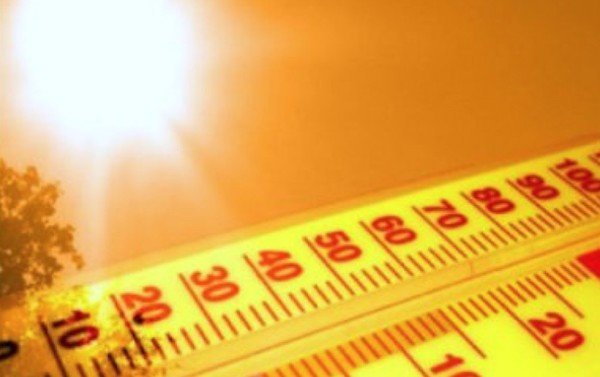White House Warns Of 2030 Heat Wave That Will Kill 11,000 People

The White House warns of 2030 heat wave that could bring extreme temperatures linked to climate change, causing an additional 11,000 deaths in the United States during the summer months.
That’s just the most obvious of many health effects of climate change outlined in the White House report, part of a year-old effort to highlight the immediate effects of rising global temperatures, according to USA Today.
Ragweed pollen season is now as many as 27 days longer than it was in 1995, leading to more asthma episodes in children, and wildfires and increasing ozone levels could also lead to respiratory problems. Incidents of mosquito- and tick-borne diseases like West Nile virus and Lyme disease are now moving north. And more violent rainfalls will lead to more flooding, more runoff and more contaminated drinking water.
“This isn’t just about glaciers and polar bears, it’s about the health of our families and our kids,” said Gina McCarthy, administrator of the Environmental Protection Agency.
The heat wave from climate change report is the work of more than 100 government scientists at eight federal agencies. The warning comes almost a year after President Obama convened the deans of 30 medical and public health schools in an effort to draw attention to the health impacts of climate change.
Heat-related deaths in the United States could rise by 11,000 in 2030, and by 27,000 in the year 2100, the report said.
Scientists expect 2030 to spawn temperatures of 3 or 4 degrees warmer. But John Holdren, Obama’s chief science adviser, noted that even small changes in average temperatures can ripple into even larger extremes.
Officials said the study was extensively peer-reviewed, and even looked at whether some of the effects of climate change would be offset. “Because of the science we have in this report and the modeling that was done, we can say that the increase in heat-related deaths far exceeds the decrease in cold related deaths. And we know that because of science,” said U.S. Surgeon General Vivek Murthy.
Some populations - children, the elderly, the poor and the mentally ill - will bear an increased health burden from climate change, the report said.
“These illnesses, which can be quite severe, which impact individuals and families, are at risk of getting worse,” Murthy said.
Administration officials also say the international climate agreement signed in Paris last year should help stave off some of the worst possible impacts of climate change. Still, John Holdren, senior adviser to President Barack Obama on science and technology, said the world will need to deepen its commitment to reducing greenhouse gas emissions later in the century to “avoid the bulk of the worst impacts” on public health.
One White House model projected that in 2030, there would be 11,000 more premature deaths from extreme heat compared to 1990. By the end of the century, that number is expected to spike to 27,000 additional deaths per year.
 By:
By: 